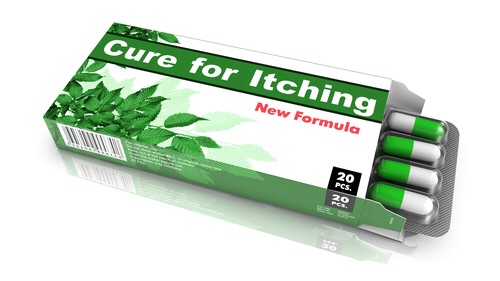Summer is in full swing and for many families, mine included, it means plenty of beach days. I mean, how else are you going to cool down without the blissful hum of a central air unit, right? (Mental note: must get central air by next year.) However, with all the water fun comes concerns of swimmer’s itch – especially as summer winds down. In our area of central Minnesota, we’ve already had cases popping up in local lakes and let me just say – kids are not happy campers when they contract it.
Steering clear of swimmer’s itch is sometimes easier said than done, but by following the tips I’ve laid out below, you can reduce your chances significantly.
5 Tips to Avoid Swimmer’s Itch
1. Skip feeding the birds.
Waterfowl like merganser ducks, Canada geese, swans, and mallards are the hosts for the flatworm parasite responsible for swimmer’s itch. The eggs end up in the water in the bird feces, which I’m sure is a lovely mental image for why people get infected. The more the birds like to hang out in areas where you swim, the more likely you’ll contract this itchy rash.
2. Apply a water repellant substance.
Spread a thin layer of a water repellant over your skin; petroleum jelly or Swimmer’s Itch Guard are excellent examples.
3. Avoid the shallow end.
Swimmer's itch typically originates elsewhere in the lake and is brought to the shoreline through waves. It then concentrates itself near the beach and shallow water, making it the ideal way to infect young children who aren’t strong enough swimmers to go further in.
4. Rinse and dry.
You reduce the chances of allowing the flatworm parasite to embed into your skin by rinsing off with fresh water and drying off vigorously with a towel after each dip in the lake.
5. Know your lakes.
Steer clear of any lakes with reports of swimmer’s itch and ask local authorities to post signs when cases have become a problem. The length of time a beach could be infected can change almost daily (as the parasite only survives for approximately 24 hours), so keep that in mind. If your favorite swimming spot is infected, check back again soon to see if the parasite has cleared the waters.
Unfortunately, even the best maneuvers to avoid swimmer’s itch may end up with a bout anyway. Have no fear! We have some solutions for you to try in the hopes of getting on with things as fast as possible.
5 Solutions to Overcome Swimmer’s Itch
1. Corticosteroid creams.
Topical steroid creams will help reduce the swelling. Apply to the affected area according to your doctor’s instructions.
2. Cool compresses.
This relieves both the itchiness and swelling. For temporary comfort, apply the cool compress to the affected area throughout the day.
3. Epsom salts baths.
Comprised of magnesium and sulfate, you’ll find an Epson salt bath is a natural exfoliate and anti-inflammatory remedy.
4. Anti-itch lotions.
Topical antihistamines will help alleviate the itchiness associated with swimmer’s itch.
Depending on the severity of the rash, antihistamines in tablet form may be the way to go. Consult your doctor to find out if this approach is right for you.
One thing I want to stress is not to let the fear of swimmer’s itch stop you or your kids from enjoying some time in the water. These are the days kids will remember all of their lives and you don’t want to deprive them out of fear. Swimmer’s itch it totally avoidable and manageable if you happen to get it. Now, go out, have some fun at the beach and enjoy some time with your kiddos.

by tashatuvango, despositphotos.com
###
Carissa Andrews is an passionate author and freelancer from Minnesotan with a focus in creative writing.